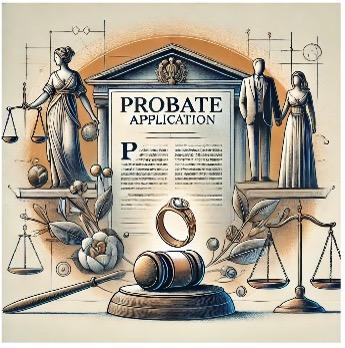
How Is a Spouse Defined for the Probate Process in British Columbia?

The probate process in British Columbia (B.C.) involves many legal complexities, especially when it comes to determining who qualifies as a "spouse." This definition is crucial because a spouse has significant rights in the administration of the deceased’s estate. In some cases, the situation can become even more complicated if there is more than one individual claiming spousal status.
In this blog, we’ll explore how the law defines a spouse for probate purposes in B.C., including scenarios involving multiple spouses, and discuss the implications for estate administration.
Definition of a Spouse in B.C.
Under the Wills, Estates, and Succession Act (WESA), which governs estate matters in B.C., a "spouse" is defined as:
- Married Spouses:
- Two individuals who are legally married to each other.
- Common-Law Spouses:
- Two individuals who have lived together in a marriage-like relationship for at least two years immediately before the death of one partner.
Importantly, the definition of a spouse does not require formal registration or legal documentation in the case of common-law relationships. Instead, the nature of the relationship and the cohabitation period determine spousal status.
When Does Spousal Status End?
A person ceases to be a spouse for probate purposes if:
- Separation: The individuals have lived apart for more than two years and at least one party intended to end the relationship.
- Divorce: A married couple’s spousal status ends when a divorce is finalized.
- Marriage Annulment: An annulled marriage is treated as though it never existed in the eyes of the law.
Understanding when spousal status ends is critical because it affects rights to the deceased’s estate.
Multiple Spouses: Can More Than One Person Claim Spousal Status?
In some cases, more than one person may claim spousal status for the same deceased individual. This situation often arises in the following scenarios:
- Overlapping Relationships:
- A person may have separated from a legal spouse without formalizing the divorce and subsequently entered into a common-law relationship.
- Concurrent Relationships:
- In rare cases, someone may have maintained relationships with multiple partners simultaneously, leading to competing claims after their death.
How the Courts Resolve Multiple Claims
When there is a dispute over who qualifies as a spouse, the matter is typically resolved by the court. The court will consider several factors, including:
- The length of each relationship.
- Whether the relationships were "marriage-like."
- Financial interdependence, shared responsibilities, and emotional connection.
The court’s determination can significantly impact the distribution of the estate and the administration process.
Rights of a Spouse in the Probate Process
Once spousal status is established, the spouse’s rights under WESA include:
- Priority to Administer the Estate:
- If there is no will, the spouse often has priority in applying to be the estate administrator.
- Intestate Succession:
- If the deceased did not leave a valid will, the spouse is entitled to inherit a portion (or all) of the estate under B.C.’s intestacy laws.
- Property Division:
- The spouse may claim family property or bring forward other claims under family law.
- Variation of Wills:
- A spouse can apply to the court to vary a will if it does not make adequate provision for their maintenance and support.
Challenges in Determining Spousal Status
Disputes over spousal status can delay the probate process and lead to costly legal battles. Key challenges include:
- Proving Cohabitation: In common-law relationships, evidence of cohabitation and a marriage-like relationship is often scrutinized.
- Conflicting Claims: Competing claims from multiple spouses can create significant legal and emotional conflict.
- Intention of Separation: Determining whether separation occurred and whether one party intended to end the relationship can be subjective and complex.
How Peak Law Can Help
Determining spousal status for the probate process in B.C. can be challenging, particularly in cases involving multiple claims or complex relationships. At Peak Law, our experienced estate lawyers provide clear guidance and robust legal representation to:
- Help individuals establish or dispute spousal status.
- Navigate the probate process effectively.
- Ensure fair and lawful distribution of estates.
Whether you’re an executor seeking clarity or an individual asserting spousal rights, we are here to support you every step of the way.
Contact Peak Law Today
If you have questions about spousal status or the probate process in B.C., contact Peak Law to schedule a consultation. Let our experienced team provide the guidance and support you need to protect your rights and navigate this complex area of law with confidence. Contact us for a no cost 30-minute consultation to discuss your legal needs.
Peak Law Group
- Phone: 604-465-9992
- Email: info@peaklaw.ca
- Website: www.peaklaw.ca
Your peace of mind starts with understanding your rights. Let Peak Law help you every step of the way.